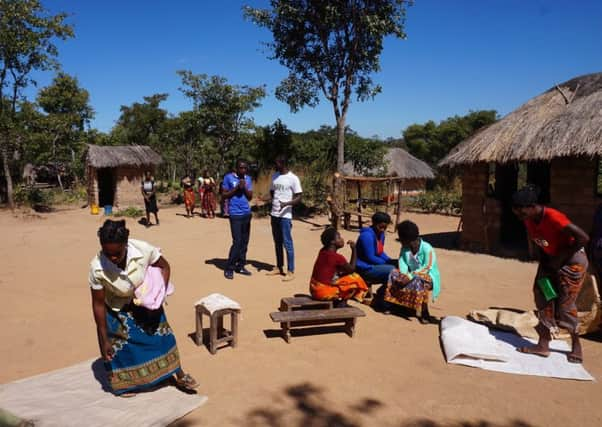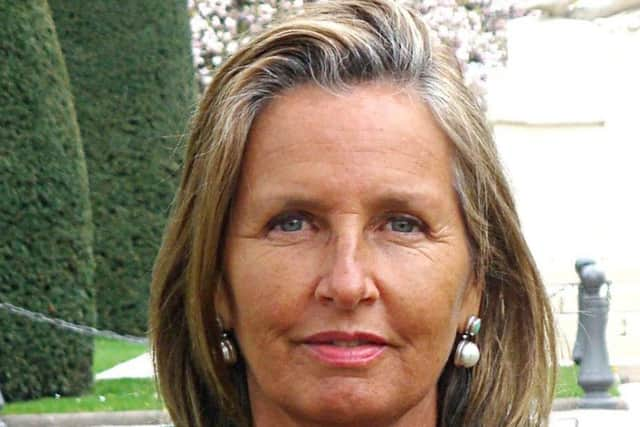Where bees are the buzz-word for building a healthy rural economy – May East


Covering much of the Zambia Central Province, the Miombo woodlands are home to a diverse ecosystem that includes antelopes, elephants, rhinos, giraffes … and bees! Amongst its 8,500 plant species are the Brachystegia, Julbernardia and Isoberlinia trees, which provide an abundant source of nectar for bees. The Miombo woodlands support the livelihoods of 150 million people across the region, including enterprising young people who are harnessing the woodlands and its natural resources to create a sustainable future for themselves.
Some of them are engaged in a three-year youth-focused project, the Zambian Youth for Conservation, Agriculture and Livelihood Action (ZYCALA), funded by the Scottish Government.
Advertisement
Hide AdAdvertisement
Hide AdThe project is empowering a generation of young farmers with a whole systems ecological design approach in conservation agriculture which includes organic demonstration gardens, poultry and, in particular, beekeeping.


Wild honey has been collected and consumed across the region since pre-colonial times. Due to cultural and social factors, beekeeping in Zambia has traditionally been a predominantly male occupation but not in the ZYCALA project, where women are achieving surprising results. Working side by side young women and men are combining efforts and learning the skills needed to monitor and manage the 174 occupied beehives the group has built.
As consumer demand for locally-sourced organic foods – including honey – increases in Zambia, so the ability of ZYCALA members to influence the producers and regenerative food growing practices of their districts has grown over the last two years. And the financial results have been promising. Utilising their recently acquired collective decision-making skills, youth groups are generating income to then buy seeds for the next season or increase their animal stocks. Many are saving for their studies.
There is a dynamic link between sustainable forest management and beekeeping. Although relatively intact, climate change, higher demand for fuel-wood, and unsustainable practices of agri-business are starting to impact this unique Zambian ecosystem. The conservation agricultural and beekeeping activities promoted by ZYCALA have been developed as a regenerative strategy to support rural youth through value addition and forest conservation.
The project has adopted a “beyond-aid” model of sustainable development. This approach promotes a shift in language and intention from “beneficiaries” to stakeholders and partners. Our ZYCALA partners are now active in the decision making process, shaping policies and co-operatives informed by their local needs. So, here is a project that will be contributing to Zambia’s current annual production of honey, worth over US$2 million a year and driven by an estimated 30,000 smallholder beekeepers selling 2,000 tonnes a year. ZYCALA honey production will be offered in both national and international markets from August this year.
Zambia, in the heart of Southern Africa, has a rich history of conservation and cultural heritage. Chitambo, in particular, nestled in the Miombo woodlands, is the land where the missionary and explorer David Livingstone passed away in 1873. In fact, the first written records of Zambian bee-hives date back to 1854, when Livingstone described log and bark hives, suspended from branches, used by the Central Province people.
Beekeeping first became a commercial activity in Zambia when Portuguese traders from Angola came searching for beeswax in the 1890s. Recently, 130 years later, a Portuguese/Angolan honey buyer came to inspect the honey house that is being built to process ZYCALA honey, paving the way for the export to European ethical markets. History has come full circle for the young people of ZYCALA.
The ZYCALA story is indicative of the new ways in which international development work is increasingly conducted. No longer passive recipients of aid, they instead seek new ways to fund development such as impact investing, crowdfunding, transparent giving, social enterprises and community-led cooperatives.
Advertisement
Hide AdAdvertisement
Hide AdThe ZYCALA team is also outward looking. The EU, the largest global consumer of honey, has strict food and safety regulations. Accounting for more than 20 per cent of global consumption, the EU also buys the unique Miombo honey. The ZYCALA honey house has therefore been built to meet Zambian and EU regulations.
The project has been showcased in several Central Province agricultural fairs. Through social media, their films have reached out to 300,000 young people, sharing their applied learning on ecosystems regeneration and advocacy campaigns to others so that they too can raise awareness about the need for innovative social and natural systems management.
As well as contributing to the UN Sustainable Development Goals (SDGs) – in particular SDG 1, which aims to end poverty and hunger, and SDG 15, which promotes life on land – the project is also empowering young women SDG 5. As one young female ZYCALA member told me: “I have learnt a lot about what it means to be a leader and how we as young people should lead initiatives such as conservation farming and beekeeping to redress generational cycles of poverty and malnutrition and create livelihood opportunities for ourselves.”
Giving young women – and men – the power to shape their own futures might be the most important legacy of ZYCALA.
May East, MSc, FRSA, is chief executive of Gaia Education